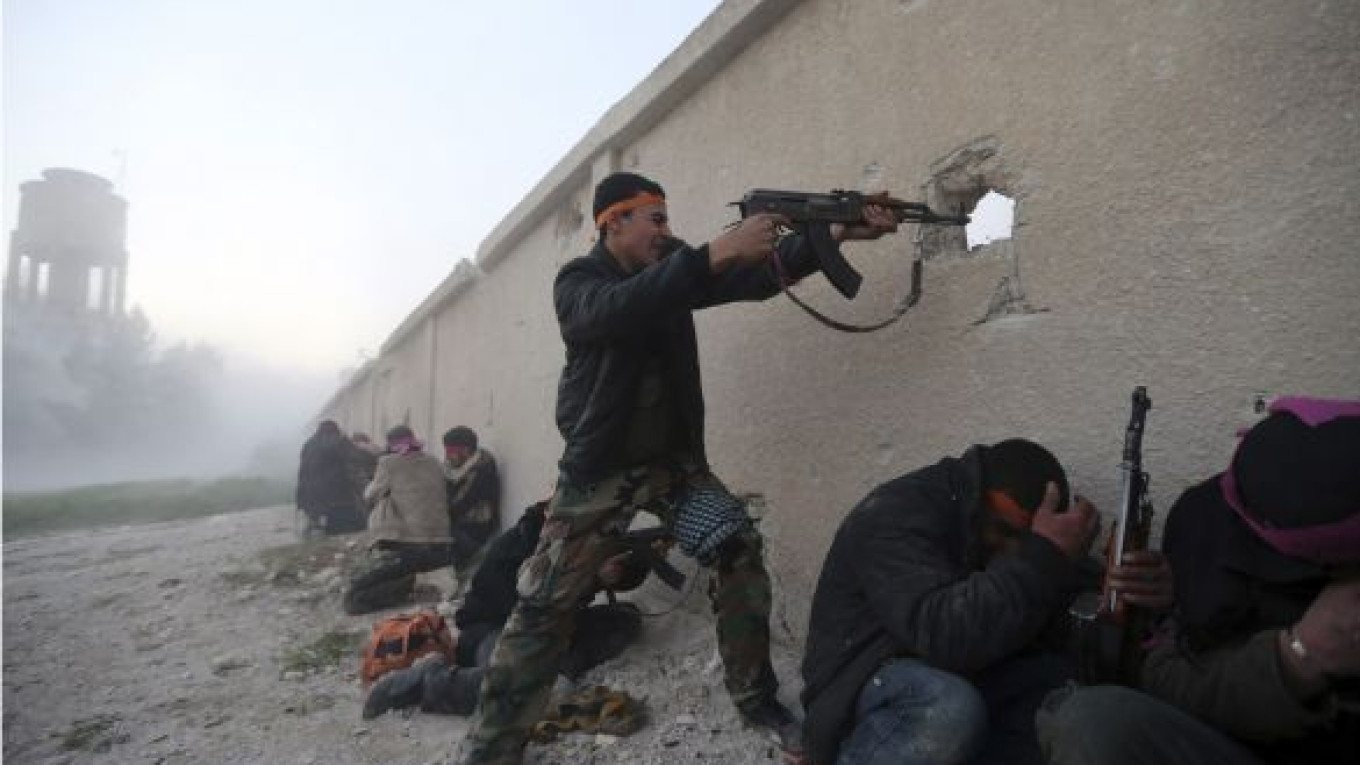Russia hopes to compensate for the loss of weapons markets by building new ones and expanding the geographic reach of its arms exports, a leading government figure said Tuesday.
Alexander Fomin, the head of the Federal Service for Military and Technical Cooperation, was speaking to journalists ahead of an international exhibition in Bangalore, India, at which he will head the Russian delegation.
"We are losing [weapons] markets and gaining new ones at the same time," Fomin said, Interfax reported.
He cited losses in the Middle East and North Africa.
“Cooperation with Libya has been halted — temporarily, I hope,” Fomin said. “There's a temporary drop in deliveries, though we are in touch with Egypt and Iran. We're prevented from working with Syria, that's a fact. We lost Iraq. We've almost lost Afghanistan.”
Despite setbacks, however, Russian arms manufacturers have developed new markets in Venezuela and Peru as well as in places forgotten since Soviet times, like Mali, Ghana, Tanzania, Uganda and Oman, Fomin said.
He attributed the current trend to a tense international situation and a "redrawing of the world's map," adding that Russian-made arms would nonetheless remain competitive internationally.
"We have plenty of problems, of course, but so do our competitors," he said.
Russia's overseas arms sales exceeded $14 billion in 2012, making it the world's second-largest arms exporter after the United States.
Russia doesn't produce the type of fuel required for the French-made Mistral helicopter carrier ships, said Deputy Prime Minister Dmitry Rogozin, who oversees the military-industrial sector.
Rogozin said Russian chemists need to develop “special devices to overcome the problem,” Interfax reported Tuesday. ?
The deputy prime minister, who made his comments while visiting a military scientific institute, has long opposed the purchase of Mistral ships for the Navy.
A source in the military-industrial complex said the Mistral would need up to 50 different types of fuel and fuel-related materials to function properly. He added that the contract with France doesn't include the supply of those materials.
The contract to buy the ships from France was signed during the tenure of former Defense Minister Anatoly Serdyukov.
The deal, worth $1.9 billion, entailed construction of two Mistral carriers, with an option for two more. The first one is under construction in Russia and France, while the fate of the second is unclear.
It was the biggest purchase of foreign-made military equipment by the Russian government in the post-Soviet era as well as the first contract on such a scale with a NATO country.
Related articles:
A Message from The Moscow Times:
Dear readers,
We are facing unprecedented challenges. Russia's Prosecutor General's Office has designated The Moscow Times as an "undesirable" organization, criminalizing our work and putting our staff at risk of prosecution. This follows our earlier unjust labeling as a "foreign agent."
These actions are direct attempts to silence independent journalism in Russia. The authorities claim our work "discredits the decisions of the Russian leadership." We see things differently: we strive to provide accurate, unbiased reporting on Russia.
We, the journalists of The Moscow Times, refuse to be silenced. But to continue our work, we need your help.
Your support, no matter how small, makes a world of difference. If you can, please support us monthly starting from just $2. It's quick to set up, and every contribution makes a significant impact.
By supporting The Moscow Times, you're defending open, independent journalism in the face of repression. Thank you for standing with us.
Remind me later.


